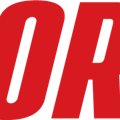NAPA helping its auto repair shops get ready for EVs, hybrids
While attending the 2022 NAPA Expo in Las Vegas, Motor Age’s technical editor, Brandon Steckler, sat down with NAPA’s vice-president of emerging markets, Susan Starnes, to chat electric vehicles, hybrids, and how auto repair shops can be prepared.
Brandon Steckler: What are some of the newer technologies out there and how is NAPA going about staying on top of providing parts of the aftermarket?
Susan Starnes: We are making sure that we're staying in touch with the cars that are out there for vehicles in operation [VIO]. We're looking at what are the EVs, what are the hybrids? We're looking across the spectrum of parts they require and making sure that we understand what parts we need to prioritize having.
For example, for a new vehicle that comes out, you are definitely going to want to have wiper blades and things like that because they'll need to be replaced frequently, and other things don't need to be replaced quite as frequently, so we're looking at what parts are going to be needed when and filtering that on top of understanding the whole realm of what parts there are, and what cars there are to make sure that we have them available.
Also, we talk a lot with our customers to understand what they are seeing fail. What parts are they not able to get? Then, we take that information back and work with our suppliers to say, "Hey, we need this part in the aftermarket," and we have a lot of strong suppliers who do a lot of work with OEMs.
BS: Is there anything NAPA is doing to work with the shops to stay ahead of the curve for not only the training required to calibrate systems like this to safely work on something like electric vehicles?
SS: We have a whole list of trainings, and we're working on additional trainings. We're working with some of our suppliers on trainings as well. With emerging technologies, things are coming out all the time, so we know this is going to be an ongoing process, and we're going to continue to come out with additional trainings and stay in front of it.
We're continuing to come out with new trainings, but we're also looking at ways to accelerate that training. For example, we are a global company, so we are able to learn what is going on in Europe, what is going on in Canada, and leverage their trainings as well because they have more standard, certified levels of trainings. We don't really have that in the U.S., so we're able to take from that and learn to bring that back here.
BS: What is the NexDrive program, and how does it work?
SS: That program really is aimed at equipping our garages to service EVs and hybrids. There are a few components to it: There's certainly the products — we're looking to make sure we have all the products that we need to offer — and the training is a big part of that. We're going to look to test that this year in the U.S., pulling from a lot of those other sources such as from Canada and Europe, in particular, to test to make sure we get the right level of training. We need to ensure it's enough that you can service the vehicles but not six months' worth of training. So, how do you pick and choose what is really going to be meaningful? We're going to work with some of our AutoCare Centers to test that and make sure we fine-tune it.
We feel like it's the right time for it because it's still early enough that people haven't seen a whole lot of EVs and hybrids yet, in general, but they know it’s coming, so we think we're right at a good time to be introducing this.
BS: Do you have any advice or insight for how shops can curb their apprehension around electrification?
SS: Education. And I think that's what we're trying to do through our different channels of communication is to let them understand there's still a lot of parts on this car that aren't changing that are going to need to be serviced. You think about brakes, you think about suspension parts, right? Those are all still the same parts that need to be serviced, so I do think it's just a matter of them understanding it and being able to learn how to work on them and embracing them and becoming comfortable with it, but yes, you’re right. It’s definitely a thing. People are a little afraid of it, so that's part of our role is to help them see the opportunity and be able to realize that.
About the Author
Motor Age Staff
Motor Age has been publishing technical content for professional automotive technicians since 1899. Our writers have decades of experience and scores of ASE certifications, and they continue to teach new generations of technicians via classrooms all around the globe, as well as through the books and training manuals they've authored.

